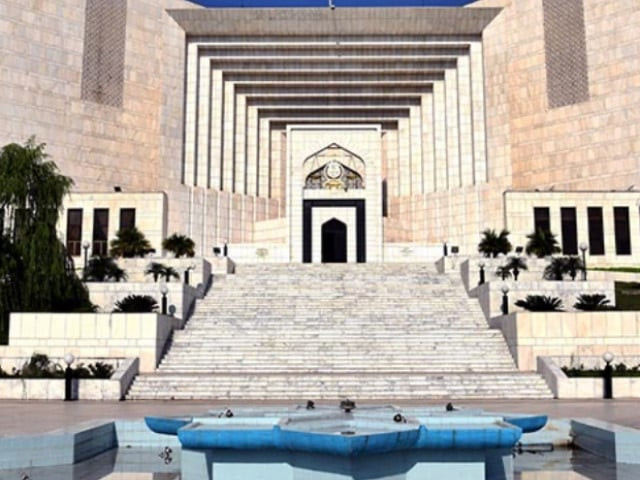SC slams its own Article 63-A judgment
Says previous ruling could turn party chiefs into dictators

The Supreme Court, criticising its own earlier ruling on the interpretation of Article 63-A of the Constitution, had noted that the previous majority judgment paved the way to transform the leader of a political party into a dictator, simply because he or she could never be challenged.
"Another consequence of the majority's judgment would be that once a Prime Minister and Chief Ministers are elected, they can never then be removed either by their own party or by the majority membership of the concerned assembly. Nothing can be more undemocratic; the majority's judgment has opened the way to transform the leader of a political party into a dictator, simply because the party's leader can never be challenged," read the 23-page detailed judgement authored by Chief Justice of Pakistan Qazi Faez isa.
The court noted that the "majority judgment held that a member who votes contrary to the direction of the Parliamentary Party the vote of such member is not to be counted/negated, not only the express provisions of Article 63A but also the following provisions of the Constitution: (a) Article 91(7), whereunder a Prime Minister may be called upon to obtain a vote of confidence from the National Assembly, (b) Article 95, under which a resolution is submitted seeking a vote of no-confidence, (c) Article 130(7), whereunder a Chief Minister is called upon to obtain a vote of confidence from the Provincial Assembly and (d) Article 136, which requires voting on a resolution of no-confidence against a Chief Minister."
These constitutional provisions were rendered redundant.
"The majority's judgment also reflects a complete distaste for parliamentarians (in its paragraph 106) as it proclaims that in the history of Pakistan and its Parliament only once did a parliamentarian come close to becoming a 'conscientious objector who took the path of defection and deseating under Article 63A.' The expression of such contempt for politicians and parliamentarians is regrettable. Let us not forget that Pakistan was achieved by politicians who had gathered under the banner of the All-India Muslim League and its Quaid (leader), M.A Jinnah, who strictly followed the constitutional path"
The court noted that the majority's short order and the majority's judgment are set aside as they are against the clear language and mandate of the Constitution and are also contrary to the decisions of the larger Benches of the court.
"The conclusions arrived at by the Judges who were in the minority are sustained" The court noted that judges in the majority, with great respect, had also not noted the particular language which was used in the Constitution.



















COMMENTS
Comments are moderated and generally will be posted if they are on-topic and not abusive.
For more information, please see our Comments FAQ